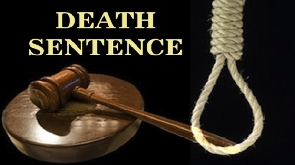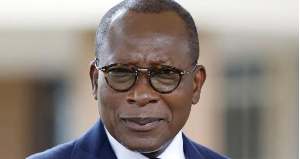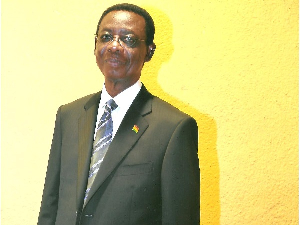Justice Samuel Kwame Adibu Asiedu, a Justice of the Court of Appeal, nominated to the Supreme Court, has advocated the abolition of the Death Penalty. The Death Penalty, also known as capital punishment, is a state-sanctioned practice of killing a person as a punishment for a crime. Justice Asiedu made the case on Wednesday in Accra at the public sitting of the Appointment Committee of Parliament when he took his turn at the vetting for his approval as a Supreme Court Judge. The President, in July this year, nominated for appointment as Supreme Court judges; Justice Asiedu, Justice Barbara Frances Ackah-Yensu, Justice George Kingsley Koomson, Justices of the Court of Appeal, and Justice Ernest Yao Gaewu, Justice of the High Court. Mr Francis-Xavier Kojo Sosu, the Member of Parliament for Madina and Human Rights Lawyer, wanted to know from Mr Asiedu whether he shares the view that the death penalty, which was irreversible, must indeed, be replaced with life sentence. Justice Asiedu reiterated that those who advocated against death penalty had done, so from about two or three angles. “Life is precious. Life is so fundamental, and that we as human beings cannot create life and so we have no right to take away life. Once life is taken it is irreplaceable,” he said. He noted that in the judicial system, there was that likelihood that a mistake could have been made; saying “So, a person could have been convicted, when in actual fact he has not committed the crime he is alleged to have committed”. “And meanwhile if he is put to death and later on evidence comes up to show that the person was innocent, we just cannot bring that person back (to life). “And so, nobody should be put to death or for that reason, the death penalty must not be made to continue to exist in our statutes books.” Justice Asiedu said judges were to interpret the law and apply it and as long as that punishment remained in the statutes book, the judge had no alternative but to apply it. He said it was a step in the right direction that bills had been initiated to amend the Criminal Procedure Code and the Criminal and Other Offences Act; Act 29 and Act 30. “I think it is a step in the right direction,” he said. Currently about 27 African countries have abolished the death penalty. Mr Sosu said there were about 171 persons currently on death rolls in Ghana. In 2010, the Government commissioned a Constitution Review Commission, which recommended that the death penalty be replaced with life sentence. He said the recommendations were accepted by the Government, and a Government Whitepaper was issued but for over 10 years nothing had been done about it. He said currently Parliament was considering two bills that sought to replace the death penalty with life sentence for ordinary crimes. “I say for ordinary crimes because those bills do not seek to touch the Constitution with respect to treason and high treason,” he said. He said the bills were seeking to amend the Criminal and Other Offences Act, the reason being that almost all the 171 people on the death roll were tried under the Criminal Offences Act.
Entertainment












